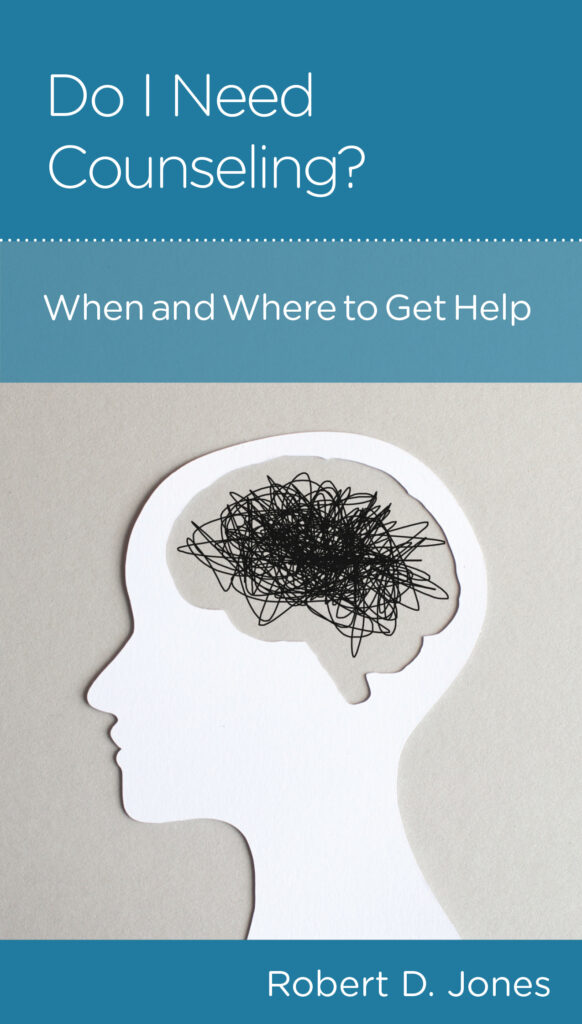Do you need counseling? The answer depends on what you mean by “counseling,” and the kind of problem(s) you struggle with.
Are your personal or relational problems overwhelming you, negatively impacting your daily life or relationships? While all of us face the common pressures of living in a fallen world, sometimes those challenges become too much to handle alone and hinder us from effectively functioning the way God designed.
Perhaps you find yourself unable or temporarily unwilling to hear, believe, and apply God’s counsel so that you can handle your problems on your own. Or it could be that your normal avenues of informal one another care from your church seem insufficient, and you need a trained counselor to help you. These are times when you could benefit from focused help.
What kinds of problems might you address with a counselor? Perhaps you struggle with personal and internal problems like:
- Worry, fear, anxiety, or panic attacks
- Anger, bitterness, and resentment
- Doubts about your salvation and/or questions about God’s goodness
- Bad habits, addictions, or chronic sinful patterns
- Sexual lust, masturbation, or fantasizing about others
- Sadness, disappointment, depression, or hopelessness
- Grief, bereavement, or other kinds of losses
- Self-harm or suicidal thoughts
- Eating disorders
Such problems can rob your inner peace, distract your mind, and consume you.
Or perhaps your struggle is interpersonal and relational—involving wrongs done to you by others, wrongs done by you to others, or both. Maybe you hurt someone, or someone hurt you, and now feelings of distance or discomfort disrupt your relationship with your family member, friend, coworker, or fellow church member. In particular, marriage, parent-child, or extended family conflicts frequently need specific forms of relationship counseling.
Some problems might come from difficulties in handling suffering from general life hardships, such as natural disasters; economic downturns; accidents; or physical illness, disease, or disability. Or maybe you are suffering the impact of severe mistreatment or various forms of abuse, especially those resulting in trauma.
Do the problems you face involve present circumstances that need your immediate response, but you don’t know what to do? Perhaps they involve unresolved past circumstances that presently invade your memories. What you did, what others did to you, or what happened to you currently haunts you.
Sometimes your problems might produce physical symptoms: high blood pressure, anxiety, sleeplessness, lethargy, gastrointestinal ailments, or no desire to eat. Those bodily symptoms, in turn, can affect your inner thoughts and feelings.
The presence of any of these factors suggests the need for formal counseling. In fact, maybe your specific struggle combines many of the above ingredients: personal and interpersonal, past and present, with and without physical manifestations. A counselor can help you sort out the issues as well as help you handle them.
Less Obvious Cases
Sometimes the need for counseling seems less apparent. Alyssa questions whether she needs counseling. In her two years of post-college ministry in a south Asian country, she experienced the ravages of poverty and conflict. She learned a lot about the world and the work being done there to help others, and she also learned about herself. She came back to the U.S. and has had a hard time adjusting to the affluence of her parents’ suburban neighborhood. Things that never bothered her before now stir feelings of anger, bitterness, or guilt. She wonders how to handle her discomfort and what to do with her life.
As Tyler contemplated his own struggle, he asked himself the same question. A twenty-nine-year-old single man, he lives in the apartment above his parents’ garage and has no social life. He attends the church he grew up in, but the community has changed in recent years and he doesn’t connect well with the new pastor or many of the older congregants. His best friend Brandon is married with two children; Tyler hangs out with them every few weeks, but that’s about the extent of his friendships. His mom and dad and Brandon all say he needs a wife, but he hasn’t been on a date in more than three years. He is not opposed to the idea—he just doesn’t know how to proceed.
Early on, God used marriage counseling to save Derek and Chloe’s marriage. Now, fifteen years later, they are enjoying their life. However, Chloe’s mom was recently diagnosed with multiple sclerosis, and Chloe’s sister who lives near their mom is the primary caretaker. Chloe thinks they should visit their parents more often and share the load with her sister, but Derek loves teaching his Sunday School class and doesn’t like to travel on weekends. They too wonder if they need counseling.
Thankfully, each person answered yes to this question. They met with a caring biblical counselor and found God’s help through God’s Spirit working through the application of God’s Word.
If you aren’t sure if you need counseling, ask a trusted friend, relative, mentor, and/or pastor. Someone who knows you well can usually help you decide if you should seek formal counseling.
Excerpt adapted from Do I Need Counseling? When and Where to Get Help ©2022 by Robert D. Jones. Used by permission of New Growth Press. May not be reproduced without prior written permission.
Do I Need Counseling?: When And Where to Get Help
While all of us face the common pressures of living in a broken world, sometimes those challenges become too much to handle alone, and they hinder us from effectively functioning the way God designed. It could be that your normal avenues of informal one-another care from your church seem insufficient, and you need a trained counselor to help you. These are all times when you could benefit from focused help.






